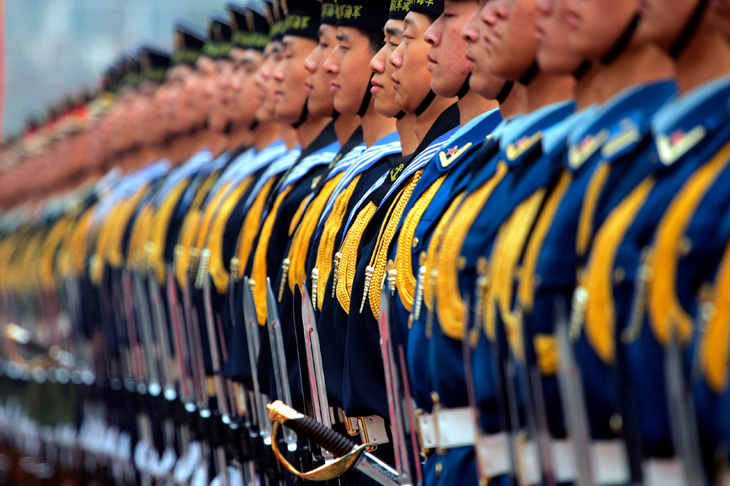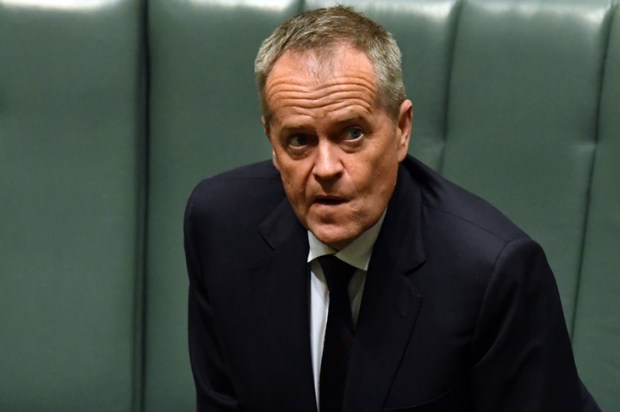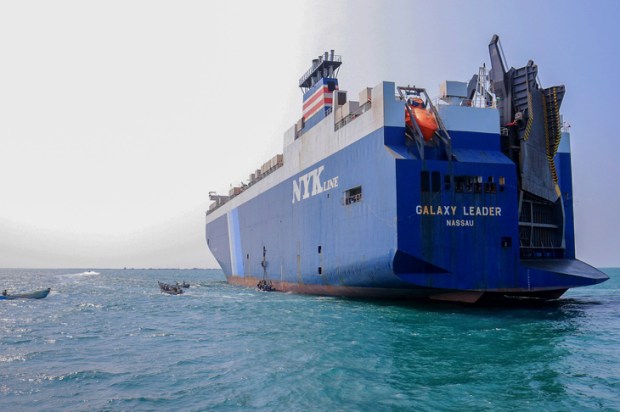If Australians needed any further evidence of Xi Jinping’s undeclared war against his perceived adversaries, the aggressive buzzing of an RAAF surveillance aircraft over the South China Sea last week is sufficient. This dangerous manoeuvre, which had to have been approved by the Peoples Liberation Army command, could have brought down the Australian plane. Not only did the Chinese pilot fly dangerously close to the Australian aircraft, he ejected aluminium debris in front of the jet intakes, potentially damaging the engines. This was an unwarranted and unlawful act of aggression in international airspace. It came after other aggressive incidents, including the shining of blinding laser beams at another surveillance aircraft. Australia is not alone as a subject of Chinese Communist party aggression. Canadian patrol aircraft enforcing the UN Security Council sanctions against North Korea have also been intercepted by Chinese military jets, despite the CCP’s agreement to the international bans. Japan had to scramble its military jets 93 times in response to Chinese incursions on its airspace during May, up from 20 cases in the same month last year. Aircraft and shipping vessels from other nations have also been the target of Chinese aggression in recent years.
These are not isolated incidents, but constitute a pattern of behaviour by the People’s Liberation Army.
Australian surveillance aircraft have been flying over the South China Sea for decades. It is part of the long-standing arrangements under the Five Powers agreement, a 1971 arrangement between Australia, Malaysia, New Zealand, Singapore and the United Kingdom to advance the peace and security of the region. Despite China’s novel territorial claims to the South China Sea, it is an international space in which Australia has a real economic and strategic interest. Australia’s top-five trade partners are all in the Indo-Pacific, and approximately 98 per cent of our international trade by volume travels by sea – and more than half of that through the South China Sea. By 2030, the Indo-Pacific region is expected to account for 21 of the top 25 sea and air trade routes and one-third of the world’s bulk cargo movements. By 2050, almost half of the world’s economic output is expected to come from the Indo-Pacific, and the region will be home to four of the world’s top economies.
Recent events demonstrate that while the CCP leadership proclaims its abidance with international law, it habitually flouts it. China routinely reacts to international events it regards as unfavourable, such as diplomatic initiatives perceived to be against its interests, by routinely engaging in aggressive behaviour.
China’s behaviour in the South China Seas mirrors its actions in the East China Sea, especially its desire to claim the Senkaku Islands from Japan. If ever successful, China would seek to control waters within 100 miles of Japan and the Nansei Islands close to Taiwan.
China’s conduct follows a pattern established by the CCP over the past decade. In 2016, President Xi Jinping, delivering a speech to commemorate the 70th anniversary of the Korean War, declared that the ‘Chinese people understand fully that [China] must use the languages that invaders understand to communicate with them. It is to use war to stop war, to use force to prevent conflict/war and to use [war] victory to win peace and earn respect.’ The phrase ‘using force to prevent war’ has been used by Xi and some of his top military commanders on various occasions, as have references to the ‘peacetime employment of military force.’ Interestingly, apart from the regime in Pyongyang, only China maintains that the North Koreans were victorious in the war on the peninsula. In the past year, the regime has promoted a film about the war, a fictionalised account of the Battle at Lake Changjin, to coincide with the centenary of the CCP. This jingoistic production was one of a series of nationalistic movies aimed squarely at the domestic audience.
While the idea of using force to prevent war is common to the military strategies of many nations, like most Chinese notions, it must be understood in the context of the CCP’s aspirations. The detail is found in the PLA’s definition of using military power to warn ‘relevant parties not to cross [China’s] redlines’. These redlines are being redefined by Xi to include as Chinese territory everything within the so-called ‘nine-dash line’, including the China Sea and Taiwan. These lines were repeated by China’s Defence Minister at the annual Shangri-La Dialogue in Singapore last weekend. China believes that its aggressive tactics will frighten other nations into compliance. The notion is not new in Chinese thinking. The revered military strategist of the 5th century BC, Sun Tzu, whom Xi has referenced, wrote that ‘the greatest victory is that which requires no battle.’
China’s aggression is not confined to the immediate region. Not only is China the worst offender on the Global Illegal Fishing Index, it uses its commercial fleet to enforce unlawful restrictions against other nations and harass regional fishers. The Quad initiative to tackle so-called ‘dark ships’ should lead to resistance to the grey-zone incursions by Chinese fishing vessels.
In Xi’s totalitarian world, every aspect of national life is subject to the dictates of the CCP. Trade policy, financial regulations, use and control of the internet, the conduct of private enterprises are all ultimately subservient.
If there is a lesson from the conflict in the Ukraine, it is that appeasing or ignoring an aggressor, as occurred when Russia invaded Crimea in 2014, only begets more aggression. We have to stand up to bullies. When supported by the free nations of the world, a small state can withstand the threats, the hostility and the military intervention of an aggressor. When an aggressor thumbs its nose at the rule of law, human rights and universally recognised freedoms, we have no option other than to lend our voice and our hand in resistance. As the English poet, John Donne, wrote, ‘No country is an island, entire of itself.’
Domestically, Australia must hasten the modernisation of its military as well as continue to strengthen its strategic relationships with like-minded nations. News that the previous government was negotiating to obtain US nuclear submarines while waiting for the construction of a permanent new fleet is welcome. The Albanese government should accelerate this process. We do not have time to lose. Xi Jinping has made it clear that he is prepared to use any instrument available to him to force subservience from other nations. As the incident over the South China Sea demonstrates, Australia is not immune from these threats.
Got something to add? Join the discussion and comment below.
Get 10 issues for just $10
Subscribe to The Spectator Australia today for the next 10 magazine issues, plus full online access, for just $10.
You might disagree with half of it, but you’ll enjoy reading all of it. Try your first month for free, then just $2 a week for the remainder of your first year.














Comments
Don't miss out
Join the conversation with other Spectator Australia readers. Subscribe to leave a comment.
SUBSCRIBEAlready a subscriber? Log in